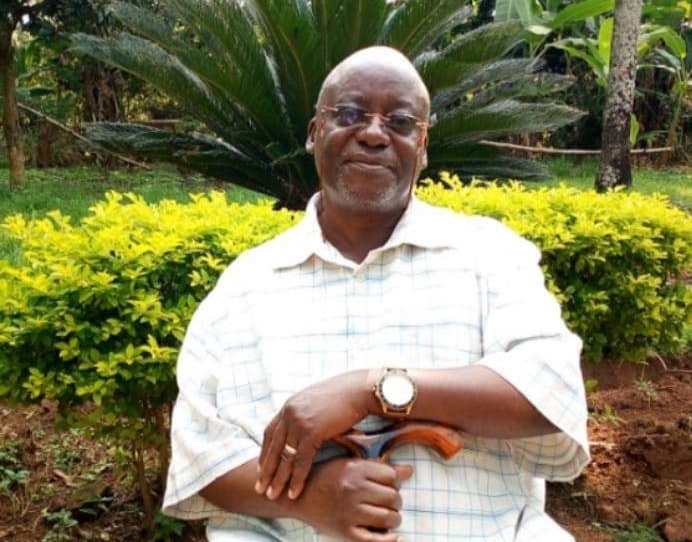From terrible landslides, erratic rains, scorching drought, Uganda like many other countries is paying a heavy price for the sins committed by people who destroy nature.
But who is to blame for the climatic catastrophes befalling the ‘Pearl of Africa’?
Yet some of its citizens and the so called ‘investors’ have swiftly embarked on actions that destroy nature, allegedly under the watch of those in power, leading to biodiversity loss and wider pollution, Uganda is on the verge of the worst climatic disaster, never seen in decades.
In a phone interview with Hon. Muwanga Kivumbi, the Chairperson for Buganda Parliamentary caucus on environmental conservation, said that the destruction of Uganda’s green cover is unstoppable.
This according to him is because people mandated to protect the ecosystems are the ones at the forefront of their destruction, chiefly officials from National Forestry Authority (NFA) and National Environmental Management Authority (NEMA).
“National Forestry Authority is a national forestry destroying authority, because employees of NFA are the very ones at the forefront of allocating themselves chunks of land in these forests. You can’t send a dog to take care of the meat,” reveals Hon. Kivumbi, who is also the Butambala County legislator.
Despite contributing less to toxic gas emissions, Uganda is highly susceptible to climate change occasioned by biodiversity loss and is paying a heavy price for that. It has lost hundreds of its citizens to climate change induced catastrophes.
Rapid population growth, unplanned urbanization, the need to amass wealth through exploitation of natural forest resources allegedly by those in power has led to relentless encroachment on wetlands and natural forest reserves, pushing the climate issue on the verge of detonation.
For instance, according to the World Bank report published in 2019, the rate of green cover loss in Uganda stood at 2.6% annually, the highest in the world, while records from the Ministry of Water and Environment show that Uganda’s forest cover has plummeted from 24% in 1990 to 10% by 2017.
Sadly for Uganda, no funds were apportioned to actual tree planting to restore defforestated forest cover, of the UGX. 628 billion which was approved by Parliament in the financial year 2022/23 for actions to mitigate climate change, including efforts to restore 850 square kilometers of degraded forest cover.
It should be noted that increased biodiversity loss due to intense human activity is too perilous for human life. Encroachment on water catchment areas frustrates the rainfall formation cycle, weakens these reserves, leading to persistent droughts and floods.
According to the Global Hunger Index of 2015, Uganda, which heavily relies on rain fed agriculture is not yet self-sufficient in food production, with many sections of the population suffering from hunger and malnutrition, with the eastern and northern regions hard hit. Statistics indicate that 59%, 19% and 11% of households in North East, Mid-North and West Nile respectively consume one meal per day.
According to the Food and Agriculture Organization (FAO), the main climate change impacts affecting agriculture in Uganda include high temperatures, more erratic and heavy rainfall, increase in frequency and duration of droughts. FAO Crop Water Assessment Report indicated up to 46% reductions in optimal banana yields due to soil moisture deficits within banana plantations.
However, it is important to note that backward political economies are paying a heavy price for climate change impacts, which they have to a lesser extent contributed to their occurrence.
For instance; according to the Climate-Smart Agriculture Country Profile for Uganda produced in 2015, the country has the lowest greenhouse gases emissions per capita in the world, estimated at 1.39 tons carbon dioxide equivalent, far below the average of 7.99 tons of carbon dioxide, yet it is vulnerable to global warming and climate change impacts.
Against this background, the Global South is urging wealthier nations to write off the debt African states owe them, in fulfilment of promises made in climate change debates.
Amitabh Behar, the Oxfam Interim Director appealed to wealthy nations to cancel the debt African states owe them, and accused superpowers of double standards at the expense of their former colonies.
“Wealthy G7 countries like to cast themselves as saviours but what they are is operating a deadly double standard – they play by one set of rules while their former colonies are forced to play by another. It’s do as I say, not as I do,” said Behar.
G7 nations and their wealthy bankers are demanding the Global South repay about US$232 million (R4.7 trillion) in debt daily through to 2028, despite it not being able to service this.
Oxfam said instead of paying back the monies, the poor nations of the world could channel funds to healthcare, education, gender equality and social protection, as well as addressing the impacts of climate change.
“It’s the rich world that owes the Global South. They promised aid decades ago but never gave. The huge costs of climate damage are caused by their reckless burning of fossil fuels. Their immense wealth was built on colonialism and slavery,” Behar wondered.
Do you have a story in your community or an opinion to share with us: Email us at Submit an Article









